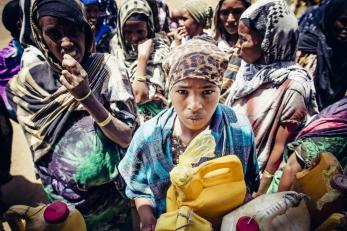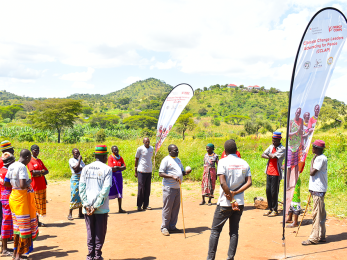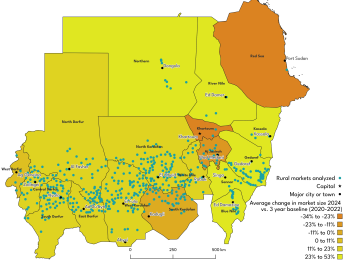Coping with Drought in Ethiopia by Building Peace

A study examining the link between conflict and drought resilience
Promoting resilience has gained attention in the wake of the recent drought in the Horn of Africa. In mid-2011, Mercy Corps received anecdotal evidence from local officials that drought-affected communities that had benefited from Mercy Corps-supported peace processes were better able to cope in the face of these harsh conditions than other pastoralist groups in southern Ethiopia. Mercy Corps undertook a study to better understand this unintended effect, and further examine the links between conflict and drought resilience.
The study produced convincing evidence of the contributions of Mercy Corps programming to pastoralists’ abilities to productively cope with and adapt to the recent drought. The findings showed that the improvements to freedom of movement and access to water, pasture and other natural resources brought about by the SIPED program were key contributing factors to households’ drought resilience.
The study sheds light on how peacebuilding programming can be done in a way that helps mitigate the effects of severe drought among pastoralists, and likely speed their recovery from them. And by extension, how such programs can serve as an effective part of disaster risk reduction efforts, thereby reducing the need for large scale humanitarian relief during periods of severe drought. This evidence points to the need for greater consideration and dedicated resources for conflict management within disaster risk reduction policies and programs in Ethiopia and other countries in the Horn of Africa.

